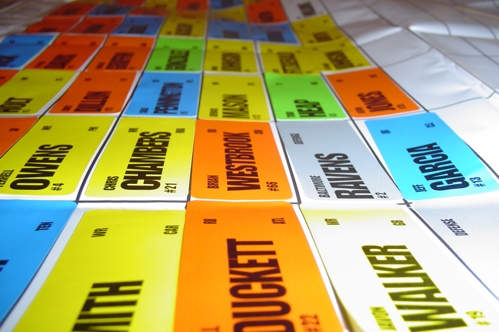
Female athletes often face an uphill battle in traditional sports — commentators often perceive them as weaker than male athletes, media spectators sexualize them by focusing on their physical attributes instead of their athletic talent, and male athletes often do not take them seriously. Yet, we know little about women’s experiences with fantasy sports, an emerging sports arena where no physical activity is required and men and women can play side-by-side. In a new study in Gender & Society, Rebecca Kissane and Sarah Winslow find that the gendered dynamics of the sporting world persist in fantasy sports, but that some women are attempting to disrupt them by asserting their knowledge and abilities in the traditionally masculine space.
Despite the potential for fantasy sports to be a more gender neutral space, Kissane and Winslow found that men often questioned women’s presence, and as one woman noted, “you are often looked down upon because you are a woman trying to play a man’s game.” Among the 42 female fantasy sports players surveyed, there were numerous instances of discrimination within fantasy sports leagues and the assumption that men are better and more interested in sports was pervasive. Some women react to this culture in ways that reproduce traditional gender dynamics — many quit or form all-women leagues, while others tacitly accept gendered stereotypes about women by positioning themselves as atypical women with the ability to “play like the boys.”
On the other hand, several women challenged the gendered discrimination that they experienced. They openly asserted their love for sports and thrill for competition, and many worked to show that they, as females, could be just as competent in the league as men. Female players also challenged gendered stereotypes by openly embracing their femininity and asserting that one could be both feminine and interested in sports at the same time. Others would coin team names that satirized gender norms.
However, the authors argue that most women they talked with simultaneously resist and reproduce the gendered dynamics of the sporting world — what they called “mediated” or “conflicted” agency — by questioning stereotypes in some cases but accepting some level of inferiority in others. They conclude that while most women reproduce assumptions about men’s dominance and women’s inferiority in fantasy sports, they also “open up the possibility for transformation of the gender order if through these efforts the climate in their leagues change and they are able to secure recognition as legitimate participants.”

Comments